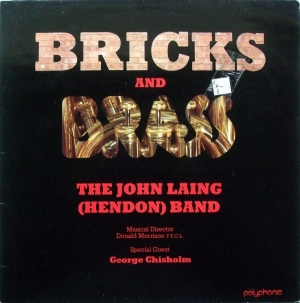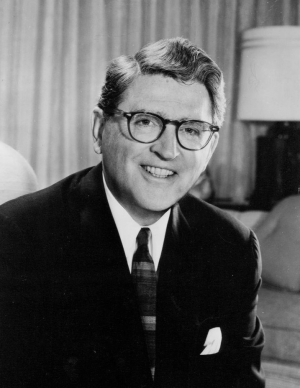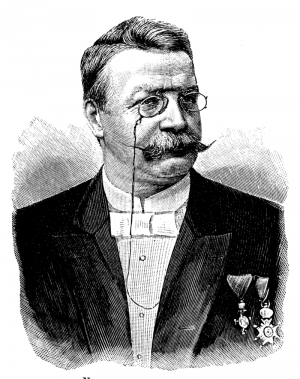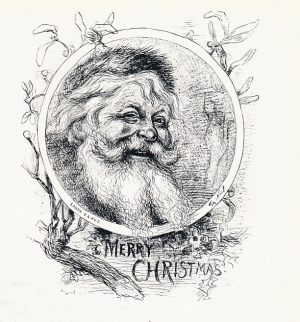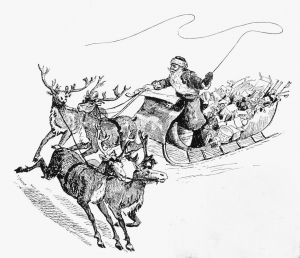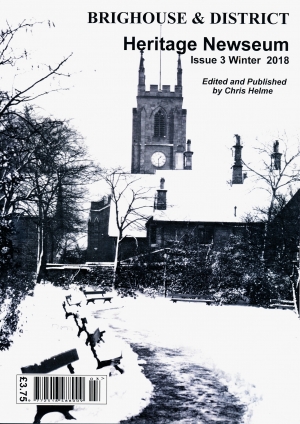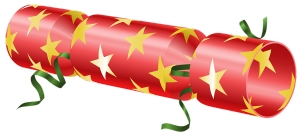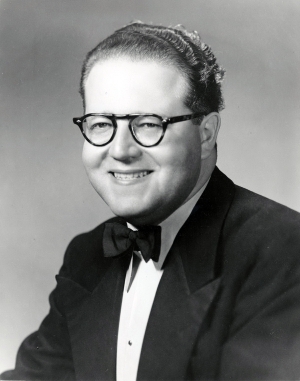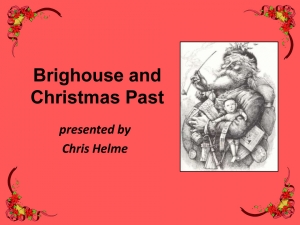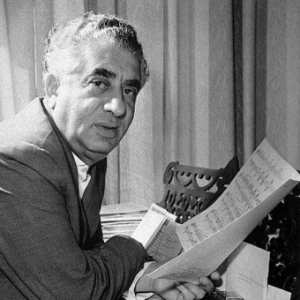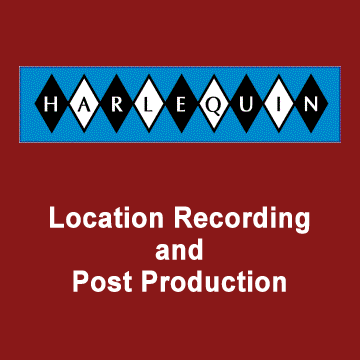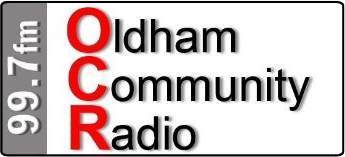Chris Helme
The Hendon Band was formed in 1956, came to the fore during the 1970s. It won the Are contest in 1975, took runner-up position on four other occasions and earned quite a reputation for its concert work.
The conductor, Don Morrison, had a flair for making arrangements in the style of the big band and several commercial recordings were made featuring these.
Hendon was a well-travelled band and by 1978 had completed 17 continental tours. Through sponsorship, it became John Laing (Hendon) Band during 1985.
In 1988 Don Morrison retired after 31 years. Though losing its sponsorship in 1998, Hendon benefitted from the temporary demise of Hanwell Band in the following year, as it welcomed some of the players to its ranks and in 1990 won the Area contest.
Jeremy Wise became a musical director in the early 1990s and there were further Area wins in 1993 and 1995. However, with the formation of First City Brass in 1997, also based in Hendon, Jeremy wise and several players moved, and the remaining members of Hendon amalgamated with another local band. Denham Hendon Brass was created from Denham Brass and the Hendon Band in April 1998.
In March 2013, the band was officially renamed as Chiltern Hills Brass under the baton of Gordon Davies L.R.S.M. and today is a thriving first section band.
This week’s image is John Laing (Hendon) Band’s LP Bricks and Brass which was released in 1986.
|
Meredith Willson was best known as author and composer of “The Music Man,” which premiered on Broadway in 1957. He was born in Mason City, Iowa, and played the flute in John Philip Sousa’s famous band from 1921 to 1923. He then joined the New York Philharmonic Orchestra from 1924 to 1929. He came to San Francisco, served as concert director for the now defunct KFRC radio station, and rose to prominence in the early 1930s as a musical director at NBC, San Francisco. In the late 1930s he moved to NBC, Hollywood, and was musical director on many of the famous radio shows of that era. He also composed for motion pictures and, in the 1940s, was twice nominated for the Academy Award. During World War II he served as a Major in the U.S. Army, involved in operation of the Armed Forces Radio Service. Many of his songs have become standards, including “76 Trombones,” “It’s Beginning to Look Like Christmas,” “You and I,” “May the Good Lord Bless and Keep You” and “Till There Was You,” a hit for the Beatles in 1963. He died in 1984. On this week’s show we have 76 Trombones but arranged with variations and the soloist is Scot Hartman with the Brass Band of Battle Creek. |
Thomas Koschat (8 August 1845 – 19 May 1914) was an Austrian composer and bass singer. He popularised Carinthian folk music across Europe and the Americas. Carinthia is a southern Austrian region in the eastern Alps that encompasses Austria’s highest mountain.
From 1865 to 1867 he attended the Technical University of Vienna, studying chemistry, but he did not obtain a degree. Instead his imagination was captivated by music, and he formed his first vocal quartet in 1866. He joined the Vienna State Opera in 1867, singing bass. In 1874 he joined the choir at St. Stephen's Cathedral. From 1877 until 1906 he performed with the Koschat Quintet. That year he also joined the choir at the Hofmusikkapelle and served as soloist there.
As a composer he was known for his Kärntnerlieder, folk songs of Carinthia arranged by himself, or else his own compositions set in that style. With his men's quartet and quintet, he toured Europe and the Americas, where the performances of his Carinthian music were enthusiastically received. For most of his life he resided in Vienna. Nonetheless he was made an honorary citizen of Klagenfurt in 1907 owing to the local nature of his work. Koschat died in Vienna, at his home on Strobachgasse in the 5th district, on 19 May 1914. He was buried at Annabichl near Klagenfurt.
He composed numerous pieces for choir, in addition to quartets and songs. Many of these are in waltz time and focus on Carinthian themes and locales. Additionally, he published a book of poems in the Carinthian dialect.
A museum dedicated to Koschat was opened in 1934, containing letters, manuscripts, portraits, awards, recordings, and other memorabilia related to his life and output. Heavily damaged during the Second World War, the museum was rebuilt and reopened in 1951 from funds raised through private donations and lotteries. The museum is open May through September for a couple of hours each day.
We feature one of his most famous compositions on this week’s show The Schneewaltzer (The Snow Waltz). Many bands will be performing this popular waltz as part of their Christmas concerts. Our performance features the Thoresby RJB Band MD: Stan Lippeatt - 2000
Hello Brass Banders - There are only nine full days left to Christmas Day. It is always interesting to look back on Christmases of yesteryear. I have a presentation about that very subject and have been to many groups this month telling my story.
As we look back gone have the days when householders would put real lit candles on the Christmas tree - health and safety was clearly not an issue in those far off days but no doubt kept the fire brigade busy.
Just how did mothers during the 1940/1954 rationing time here in the UK manage to make something almost out of nothing for the Christmas dinner or is it Christmas lunch where you are. Spending a fortune on presents for the youngest members of the family when they only want to play with the wrapping paper.
The local brass band comes round to your street and you have a line of young players at your door all wanting to defrost their frozen valves and hoping you might just want to share a mince pie with them.
Enjoy the show..
The latest issue (number 3 ) is now available £3.75. It can be purchased at Harrison Lords Brighouse, Kitson's Newsagents Commercial Street Brighouse, Kershaw's Garden Centre, Colin's Newsagents at Hipperholme, Bailiff Bridge Post Office, Bailiff Bridge Service Station, Woodhouse Stores Woodhouse Lane Brighouse and Townhall Dental Practice Thornton Square. It can also be purchased through my website online store through PayPal (payable to This email address is being protected from spambots. You need JavaScript enabled to view it.) or by telephone 01422 - 205763 or 07854-756755 - Please note that UK postal copies are an additional £1.30 for p/p (overseas will be more please enquire before purchase).
Christmas crackers were invented by Tom Smith, a London sweet maker in 1846. The original idea was to wrap his sweets in a twist of fancy coloured paper, but this developed and sold much better when he added love notes (mottos), paper hats, small toys and then made them go off with a BANG! - The mottos developed into some brilliant one-liners....
Alfred Reed (January 25, 1921 – September 17, 2005) was an American composer, with more than two hundred published works for concert band, orchestra, chorus, and chamber ensemble to his name. He also travelled extensively as a guest conductor, performing in North America, Latin America, Europe and Asia.
He was born in New York and began his formal music training at the age of ten. He attended the Juilliard School of Music, after which he was staff composer and arranger first for NBC, then for ABC.
In 1953, he became the conductor of the Baylor Symphony Orchestra at Baylor University, where he received his B.M. in 1955 and his M.M. in 1956. His master's thesis, Rhapsody for Viola and Orchestra, was awarded the Luira Prize in 1959. He was a member of the Beta Tau Chapter of Phi Mu Alpha Sinfonia, the national fraternity for men in music.
From 1955 to 1966, he was the executive editor of Hansen Publications, a music publisher. He was professor of music at the University Florida. He established the very first college-level music business curriculum at the University of Miami in 1966, which led other colleges and universities to follow suit. At the time of his death, he had composition commissions that would have taken him to the age of 115. Many of Reed's wind band compositions have been released as CD recordings by the Tokyo Kosei Wind Orchestra.
In this show we have his Russian Christmas Music arranged for brass band and is played by the Brass Band of Battle Creek with conductor Kenneth Bloomquist in 1994.
Hello Everyone - this was a power point presentation I did for the Victorian Christmas weekend in Brighouse in 2014 - Enjoy..........Chris Helme
Aram Khachaturian ( b:1903 in Tbilisi, Georgia - d:1978 in Moscow, Russia) was a talented composer, whose compositions became part of the musical classics of the 20th century. His name is recognised throughout the world, and the compositions are performed worldwide, on the best theatre stages, concert platforms, as well as the most distant places.
Today, the music of Khachaturian is played on the radio, TV and cinema. The UNESCO places the name of Khachaturian among the most renowned composers of the 20th century, and his 'Sabre Dance' of the well-known ballet 'Gayaneh' takes one of the first places in the list of the most popular compositions of our age.
Whilst there is a brass band arrangement of his 'Sabre Dance' on this show we are playing another of his pieces the 'Adagio from Spartacus and Phrygia' arranged by Gordon Langford, and still a popular brass band concert piece. The performance is by Sun Life Band MD: Roy Newsome - 1992
Enjoy the show......


